Life of a Radiology Service Engineer
David Barron has worked as a Radiology Service Engineer for over twenty years. During that time, he has repaired and serviced MRI, CT, X-ray, CR/DR, C-arms, ultrasound, injector equipment all over the United States and abroad. He also runs his own company – Universal Medical Systems.
He is currently working for Aspect Imaging installing MRI equipment at the National Institute of Health, but has taken time to share his experience.
A Radiology Service Engineer in the week and a Motorcycle Racer at the weekend – meet David Barron
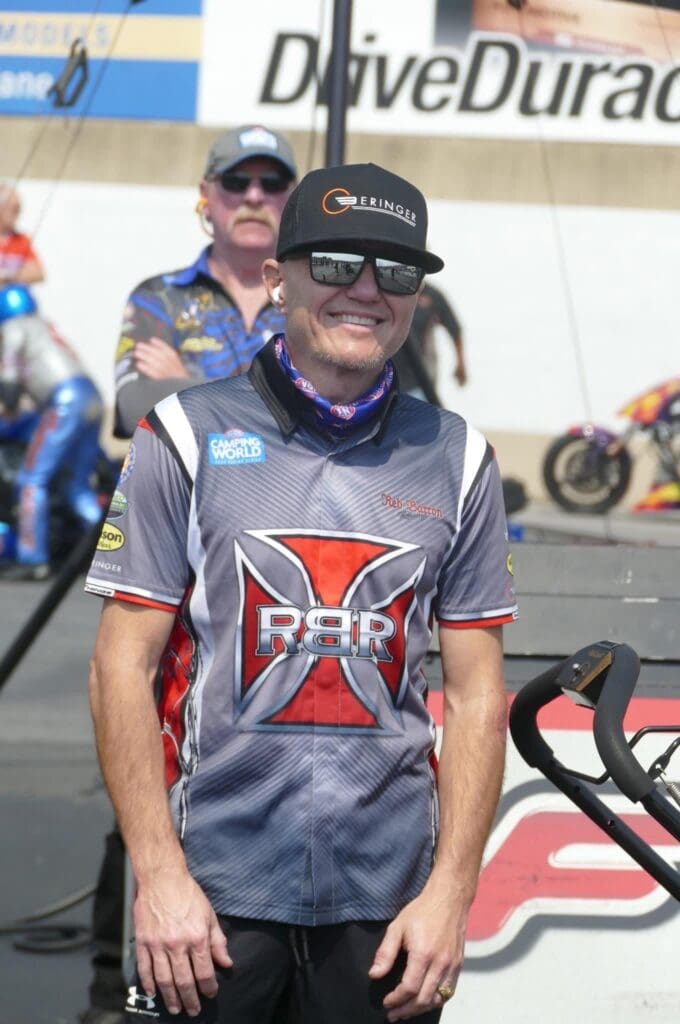

Background and path to Radiology Service Engineer
Could you give a brief description of your background and what led you to engineering?
I was the oldest of three siblings and the child that was always in the Workshop or Garage with my Dad. He was in facilities maintenance for 40 years in the Styrofoam industry. I credit him with most of my technical skills learned early in life. Growing up in our family, I was always working on race cars, motorcycles, house repairs, and many other projects.
I finished my studies and got a general studies degree in Science because I wanted to become a Physician Assistant. My plans soon changed after my first child was born so I finished my degree, and worked in the maintenance field at different companies. At the same time, I started helping a friend at his local RF (Radiography/Fluroscopy) shielding business. So, I built RF rooms for a couple of years and was always curious, asking other engineers and companies about the radiology systems they were installing in the enclosures we built. I was soon recruited by a 3rd party company in 2001 for service because of my abilities to troubleshoot electrical, mechanical, and computer systems. I was enrolled in the company’s shadow program and credit that program for most of my basic knowledge and theory today.
Training provided for working as a Radiology Service Engineer
I was trained in the program for two or three years by a gentlemen named Robert whom, at the time, nobody would shadow with because of he was a hard man to deal with…lol…
He was a hard guy to deal with, but he was almost retired and had worked for all the OEMs and 3rd party companies. So, I dealt with the occasional outburst because the things that gentlemen taught me were priceless.
He was a highly gifted engineer but had character flaws when it came to customers and social situations. He became a good friend because I stuck with him absorbing as much as possible. The only flaw I noted in Robert was he would frequently argue with customers and wasn’t much of a “people” person as he had spent many years working on the road. As the only thing he didn’t do as well was dealing with customers, I learned “what not to do” as well. I credit Robert for my basic troubleshooting techniques, theory, and what I observed in his interactions with customers. I’ve since worked for OEMs, ISOs and independently. My aim is to balance family, racing, and business.
Childhood interests
Were there any childhood interests which were a factor?
I always was a fan of NASA. As well, I thought highly of Richard Branson, and Elon Musk for always thinking outside the box.
I admired many racers from Kenny Bernstein, Warren Johnson, Tony Stewart, Dale Earnhardt, to name just a few.
Health and science grabbed my attention at an early age, so I credit many teachers, as well as my Dad.
Inspiration
Has there been a particular person who has inspired you?
My Dad. We lost him in 2020 due to contributing factors from a chemical plant explosion near his place of employment. Dad had stayed back and fought off embers, ashes and fires to prevent his employer’s business from burning to the ground after the explosion. He was just being a good Samaritan at the time and was dedicated to his work. He had to retire after months of rehabilitation and had nine years of medical battles due to lung and brain injury complications sustained as a direct result of their negligence it was found afterwards.
Typical day running a Service Company as a Radiology Engineer
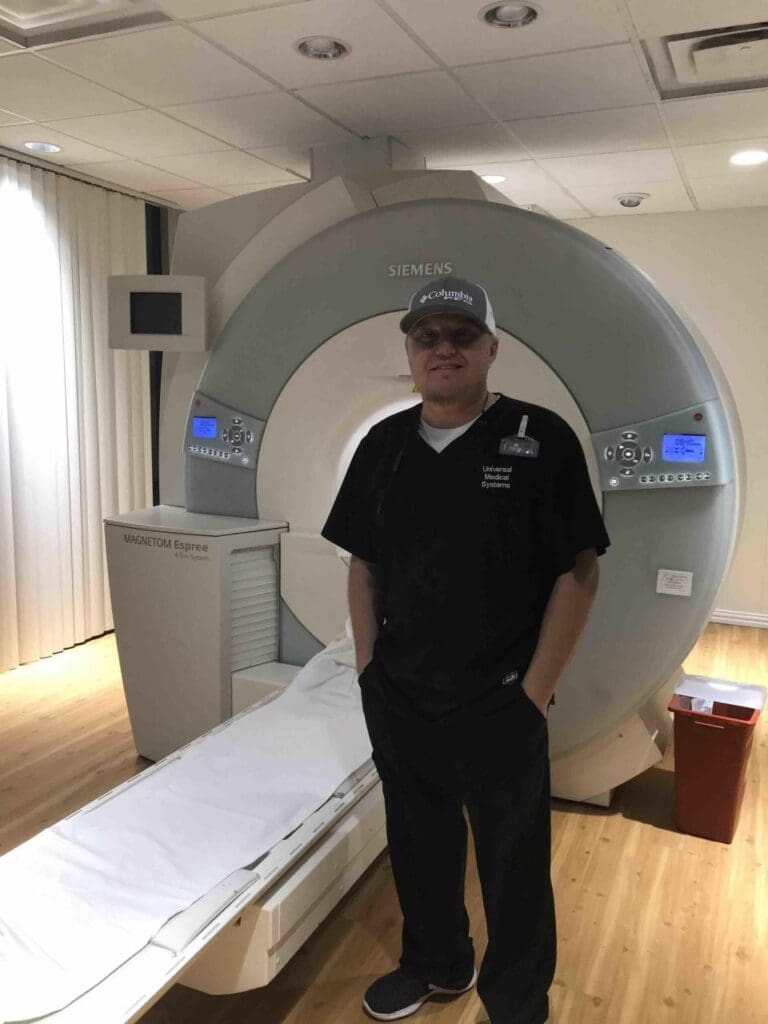

What’s your typical day like?
My alarm goes off at 5:00 AM every day. I usually start my day reflecting in prayer, reading the bible, preparing emails, parts, and tools needed in the day’s duties.
Then, I move onto having a group meeting to align with sub-contractors. I split my time consulting for many other companies as well as running my own parts and supplies business.
For example, today I’m repairing a research MRI at the National Institute of Health as part of my duties as Senior Engineer for Aspect Imaging.
How much of your time is spent ‘hands on’ and how much managing, handling customers and team leading?
It’s a delicate balance just like with racing, and it needs to be split 50/50. Being engineer owned, customers want to see you. Customer service and customer’s “uptime” is most important.
Pro Stock Motorcycle Racing
David also races Pro Stock Motorcycles with the NHRA.
He became a pro motorcycle racer in 2012 under the moniker “The Red Barron” which was created by his grandpa and dad in 1971.
There are four generations of your family who have raced, so did your interest start very young?
Yes, many nights were spent watching and sleeping at the racetrack. Most of my family and good friends, and then even my children raced.
How old were you when you first rode?
When I was six, I hopped on a cousin’s dirt bike and the passion grew from there leading to some competitive racing in high school.
What are the skills that you take from racing to running an engineering company?
There’s a lot of troubleshooting in pro stock motorcycles. You have to adapt many components in a bike to different environmental variables. It’s a machine that has been engineered just as an MRI has. For example, we use a data logger on the motorcycle to make adjustments versus an error log to fix or setup the MRI machine.
For bikes, the goal is to tune it to its maximum output with stability. The goals are similar for medical equipment.
Mindset of an engineer
How does the mindset of an engineer help you when racing?
I approach it like a service call. A set of events must take place for a MRI or motorcycle to perform correctly. You can’t think about how you are going to ride, or you will ride badly.
I am slowly learning engine maintenance and tuning as a team owner this year. It’s been a rough learning year in the engine racing side, because just like some of the machines we work on, they have an identifying problem, but it isn’t always the only problem.
The other common factor is that there aren’t always people to help you when you’re fixing something and so you have to learn and adapt. The other way that an engineer’s mindset helps is:
Knowing that it is always a group effort in the end
Realising you need to know who to trust
Being able to add your talents and input
Always learning and absorbing as much as possible.
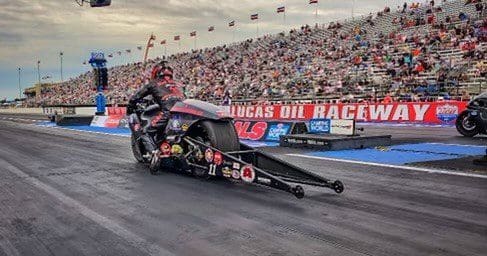

Work life balance as a Radiology Service Engineer
How do you balance racing with running a business?
I changed Universal Medical Systems to be just a parts company and devoted more time to subcontracting the work out to others. You have to know who to trust to help you maintain that balance. I am lucky as I have so many supportive people.
How do you keep time for family and friends?
I incorporate real friends and family into my racing. I ensure that I always find time to balance friendships, family, and my current relationship. It’s give and take, and you have to be flexible.
I love racing because you meet so many new people and can try to impact their lives by being an inspiration.
What advice would you give to someone setting up their own business on how to get through the first tough years?
There are four key pieces of advice I would give:
Only do business with those you trust and have known relationships with.
Spend as much time talking to the customer versus their accounts payable department.
Market yourself as a valuable need.
Take your passion and expand on it every day.
Most challenging part of the job as a Radiology Service Engineer
What is the most challenging part of your job – technical side, people management or dealing with customers?
It’s all about satisfaction and customer care.
How did you learn about trust?
I learned about trust the hard way. Sometimes, I gave others trust I shouldn’t have. I put myself in situations where I paid the price and made mistakes. But with determination and God’s grace, I have recovered and managed to know not everyone has good intentions. In business and racing, trust is earned, not given anymore.
Explaining technical issues
How do you explain technical issues to non-technical people?
I always correlate it to something they can already understand. By that I mean, something that they have first-hand knowledge of.
Equipment used as a Radiology Service Engineer
Have you ever serviced a machine and thought: “this has been brilliantly designed”?
Aspect Imaging’s research M series MRI and their dedicated neonatal MRI are brilliant because they are innovative and uniquely designed.
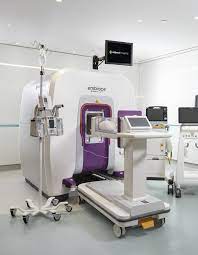

Have you ever serviced a machine and thought: “this has not had any input from the service team”?
I see it all the time. People pay for a preventive maintenance service and they basically get their system covers wiped down and cleaned rather than tuned per oem (original equipment manufacturer) guidelines. It’s hard to witness.
Ideal service engineer
What sort of personality traits and skills are ideal?
Honesty, flexibility and most of all, someone you can trust to do a job right.
Apart from a strong technical background, what are the three most important skills to have?
The three are:
customer service communication
focus
determination.
Who would you suggest looks at this sort of work?
MRI, CT Service
Any electrical or mechanical engineer student. There are so many technical programs and internships that can get you started on a path.
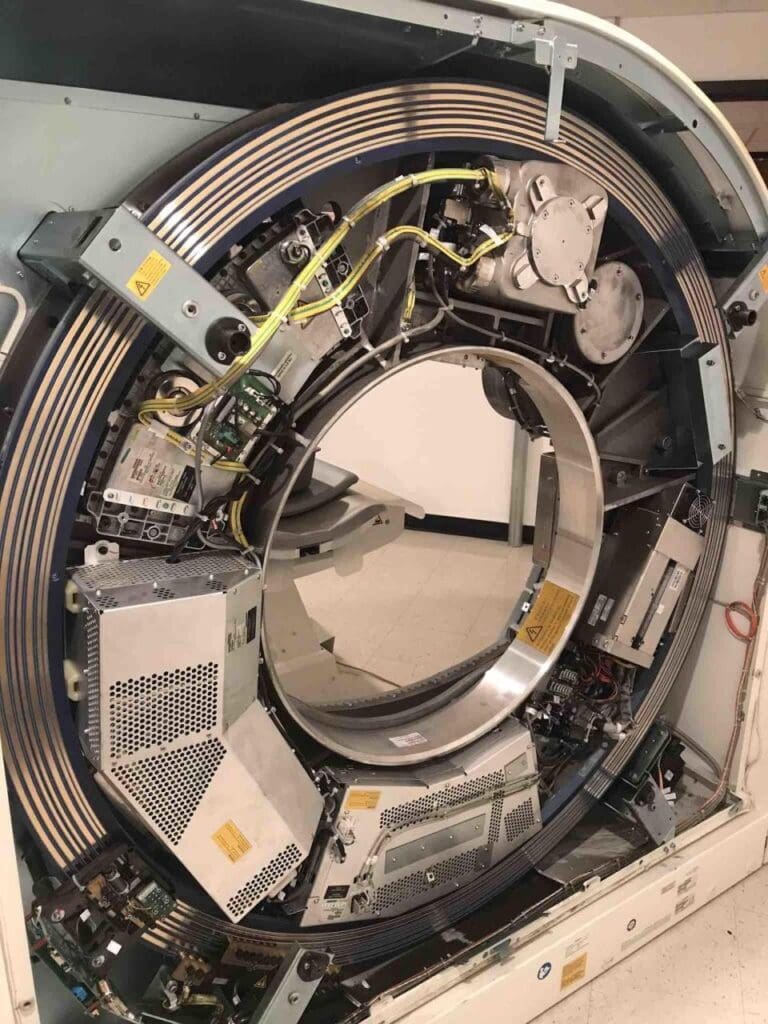

Racing
It builds character.
It’s giving it all you’ve got in 7 seconds or less. Trusting yourself and the others around you to do so, any hesitation or doubt will always overcome you. Stay positive and keep the faith!


Responses